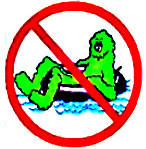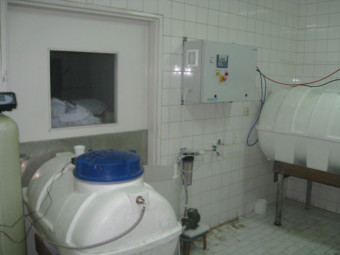| Anolyte has since been used as a method of water treatment in commercial and industrial applications, including human waste treatment and oil exploration, ensuring that water courses and the environment have not been overly contaminated by the primary source.
Anolyte, a blend of electrolysed brine and water, has been developed by Envirolyte to provide a unique electrolyzed water biocidal liquid that provides the cleaning strengths and benefits of chlorine without the dangerous side effects, ensuring no toxic or other side effects to humans or animals.
As anolyte is biodegradable, it is therefore not detrimental to the environment or aquatic life.
Envirolyte has also developed the technology and experience required to enable the product to remain stable and active in storage for up to 18 months, making it an ideal healthcare industry cold sterilisation tool with excellent sporicidal, fungicidal and bactericidal powers whilst at the same time.
WHY IS IT BETTER THAN THE OTHER BIOCIDES?
Comparisons of sporicidal cold sterilant options
| Disinfectant |
Health & Safety Risks |
Risk to equipment being sterilised |
Sporicidal Shelf Life |
Log 10 6 spore kill time under „clean“ conditions |
| Glutaraldehyde |
High |
Absorption by plastics |
14-28 days |
> 3 hours |
| Peracetic acid |
High |
Damages copper alloys |
1 day |
< 5 mins |
| Chlorine dioxide |
Low |
Medium |
7 days |
< 2 mins |
| Enzyme Surfactants |
Low to medium |
Low |
|
|
| Electrolysed brine |
Minimal |
Some plastics need protection |
Hours |
< 2 mins |
| Anolyte |
Minimal |
Low |
> 10 weeks „dirty“ > 12 months „clean“ |
< 2 mins |
Anolyte biocidal tests (Log 10 reductions)3
| Sporicidal |
Clean1 |
Dirty2 |
| Bacillus subtilis var niger |
>6.32 |
>6.28 |
| Bactericidal to BS EN 1276 |
Clean1 |
Dirty2 |
| Pseudomonas aeruginosa |
>5.00 |
>5.00 |
| Escherichia coli |
>5.00 |
>5.00 |
| Staphylococcus aureus |
>5.00 |
>5.00 |
| Salmonella typhinurium |
>5.00 |
>5.00 |
| Klebsiella pneumoniae |
>5.00 |
>5.00 |
| Fungicidal to BS EN 1275 |
Clean1 |
Dirty2 |
| Candida albicans |
>5.00 |
<4.00 |
1. 0.03% horse serum;
2. Sporicidal tests 1% horse serum; and BS EN 1275/1276 0.3% horse serum;
3. Testing carried out at HIRL, Dudley Road, Birmingham, Don Whitley Scientific Ltd, Shipley, West Yorkshire.
Identified hospital applications of anolyte but not limited to
- Hard Surface treatments
- Hand washing
- Instrument soak and wash
- Decontamination of Endoscopes and Washing equipment
- Decontamination of water storages and pipework
- Secondary disinfectant under EN15883 / HTM 01
- Podiatry – instrument washes and foot soaks
- Radiology – wipe down of hard surfaces and decontamination of ultra sound
- equipment
- Bed and wheelchair washing [compatible with most UK bedwashers]
- Laundry pre-treatments
- Fogging clean areas – as part of deep clean or as rapid decontamination
- De-biofilm techniques in endoscopes and dental equipment
|
|
Anolyte addresses major public health threats of

M.tuberculosis,MRSA, C.Difficile, E.coli, norovirus, HIV Polio virus, Helicobacter pylori, Salmonella and Legionella

Human and animal influenza, (including H5N1 avian influenza and H1N1 swine influenza)

|
![]()





